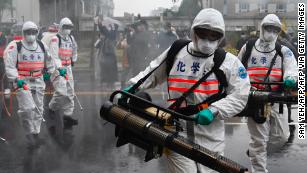Taiwan's success in fighting coronavirus has bolstered its global standing. This has infuriated Beijing
While many governments struggled to contain the spread of coronavirus, Taiwan appeared to have it largely under control.
In January, the self-ruled, democratic island of 23 million people banned incoming travel from parts of mainland China. Soon after, cruise ships could no longer dock there. By March, domestic face mask production was also increased.
As of Saturday, Taiwan has recorded 440 coronavirus cases and seven deaths, according to data from Johns Hopkins University. By comparison, Australia -- with a population of 25 million -- has reported more than 7,000 infections and 98 deaths.
Eager to share its experiences in fighting Covid-19, Taiwan is now pushing for a greater voice in global health discussions. The United States, Japan and New Zealand have all voiced support for Taiwan to join next week's World Health Assembly -- an annual meeting of World Health Organization (WHO) members.
And this doesn't sit well with Beijing.
China regards the island as part of its territory, and has for years blocked it from taking part in many global institutions, while also refusing to have diplomatic relations with countries that maintain official ties with Taiwan.
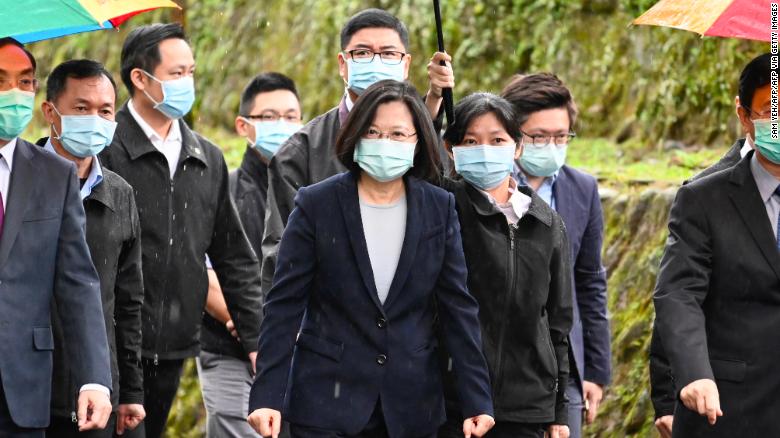
Taiwan President Tsai Ing-wen arrives during a ceremony to unveil the Cyber Security Investigation Office in New Taipei City on April 24.
Taiwan, which is not a WHO member, joined the WHA as an observer from 2009 to 2016, when the island was governed by the Beijing-friendly Kuomintang (KMT). But when the pro-independence Democratic Progressive Party (DPP) took office in 2016, ties frayed with Beijing -- and Taipei hasn't joined the WHA since.
"We are an integral link in the global health network," Taiwan's President Tsai Ing-wen said Thursday on Twitter. "With more access to the WHO, Taiwan would be able to offer more help in the global fight against #COVID19."
The WHO maintains that only member states decide who attends the WHA meeting, and has pushed back on claims that Taiwan is cut out of its coronavirus discussions, pointing to its collaboration with Taiwan's scientists and health officials.
But as the virus gives Taiwan a rare opportunity to boost its international profile, Beijing has accused Taipei of pushing for formal independence -- and stepped up military drills around the island. There have even been some fringe calls within China for the country to use the pandemic as an opportunity to invade Taiwan.
Democracy vs authoritarianism
As the number of new infections dropped in China and surged abroad in recent months, state media touted Beijing's success in defeating the virus while highlighting the failures of other governments to contain its spread -- particularly the US and other Western democracies.
Inside China, that sparked claims its authoritarian political system was superior to those of liberal democracies when it came to tackling the pandemic.
In a commentary late last month, state broadcaster CCTV hailed China's political system as its "biggest advantage" in overcoming the outbreak. "The firm leadership of the Chinese Communist Party is the most important reason for China to defeat the epidemic," it said.
Taiwan's coronavirus response is among the best globally
But Taiwan's rapid and transparent response -- with medical officials holding daily briefings -- from the onset of the crisis has been held up as an example of how democracies can also excel in reining in epidemics. Taiwan also avoided the type of strict lockdowns that characterized the response in China and many other countries.
Furthermore, the Chinese government has faced criticism for its initial handling of the outbreak. Authorities have been accused of silencing medical workers who tried to sound the alarm on the virus, downplaying the severity of the outbreak and delaying admission of human-to-human transmission in the critical early stages.
Beijing has repeatedly denied wrongdoing, although the mayor of Wuhan, the city where the virus was first detected, did concede in an interview with state broadcaster CCTV in late January that the city's warnings were "not sufficient," and his government did not disclose information on the coronavirus "in a timely fashion."
As well as via state media, China has tried to defend its image through diplomatic envoys. But the increasingly combative tone adopted by some Chinese diplomats on Twitter and beyond has only further fueled tensions and criticism.
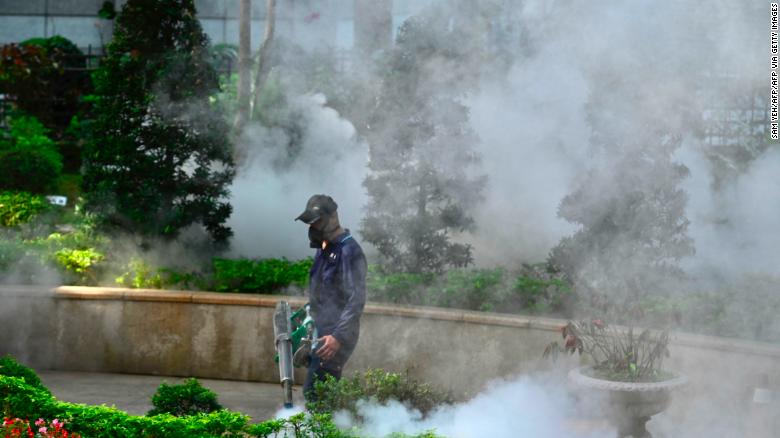
A mask-clad worker disinfects a park to prevent the spread of the coronavirus in New Taipei City on March 9.
'Taiwan can help'
As China moved to help countries by donating personal protective equipment (PPE) and other medical supplies, questions have been raised as to the motives behind its so-called "mask diplomacy."
In March, the European Union's foreign policy chief Josep Borrell warned about the "geopolitical component" of Beijing soft-power push, saying Europe must be aware of "a struggle for influence through spinning and the 'politics of generosity.'"
The Chinese foreign ministry said last month that Beijing had been providing medical supply aid to 127 countries and four international organizations, and sent 13 batches of medical experts to 11 nations.
Incidents of faulty Chinese medical supplies, from private vendors, have also created negative publicity. In March, the Netherlands recalled 600,000 "defective" face masks it purchased from a Chinese manufacturer, saying they did not fit and their filters did not work properly. Spain had a similar problem with a batch of "unreliable" testing kits it bought from China, which were found to have a low level of accuracy.
China has urged countries not to "politicize" concerns about the quality of medical supplies following the incidents.
Meanwhile, Taipei's efforts to help coronavirus-hit countries -- under the slogan "Taiwan can help" -- have been better received.
Last month, Taiwan's Foreign Ministry announced the donation of 10 million masks to the US, Europe and its 15 official diplomatic allies -- mostly small states in the Caribbean, the Pacific and Africa -- in a move that generated considerable global exposure.
As masks imprinted with the words "Made in Taiwan" arrived in boxes marked with the island's red, blue and white flag, messages of thanks poured in from senior officials in the US and Europe.
"During tough times, real friends stick together," US Secretary of State Mike Pompeo -- labeled by Chinese state media as "enemy of humankind" for his relentless criticism of Beijing's response to the pandemic -- tweeted last month, calling the island's "openness and generosity" in the battle against coronavirus a "model for the world."
European Commission President Ursula von der Leyen also publicly thanked Taipei, saying that Europe appreciated the "gesture of solidarity."
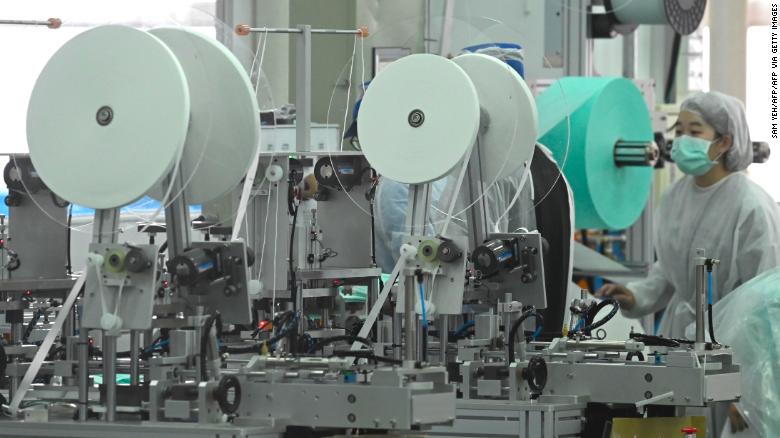
A staff of Taiwans Universal Incorporation, one of the major mask maker, operates machines at a factory in Tainan, southern Taiwan.
Improved standing
As well as donating medical supplies, Taiwan has sought to develop bilateral partnerships to fight the pandemic -- a move that has drawn the wrath of Beijing.
In March, the US and Taiwan issued a joint statement pledging to further strengthen their cooperation in combating Covid-19, including the development of test kits, vaccines, medication and contact tracing technology.
China's Taiwan Affairs Office deemed it a "despicable move and political plot to use the Covid-19 pandemic to achieve independence," and accused Taipei of "embarking on a wrongful path of confrontation with the motherland."
A similar deal between Taiwan and the Czech Republic in April also prompted a strongly worded protest from Beijing. And in India, The Hindu newspaper reported this week that Taiwan proposed a regular communication channel with New Delhi to "ensure the availability of medical resources."
In addition to bilateral cooperation, Taiwan has doubled down on its bid to return to the WHO's annual assembly.
On March 27, the US passed a law supporting Taipei's participation in international institutions and its efforts to strengthen ties with other countries, and multiple nations usually wary of being on the wrong side of Beijing, such as Japan, Canada and New Zealand, have publicly spoken out in favor of Taiwan rejoining the WHA.
On Monday, Chinese Foreign Ministry spokesman Zhao Lijian rebuked New Zealand for just that, calling on it to "immediately stop making wrong statements on Taiwan, to avoid damaging our bilateral relationship." Beijing has called Taipei's attempt to rejoin the WHA a "political plot."
"In the United States, there are people who blatantly support Taiwan to join the WHO," a spokesman for China's Taiwan Affairs Office said last week. "They are politicizing epidemic prevention issues and sending a seriously wrong signal to the Taiwan independence forces. We resolutely object to that."
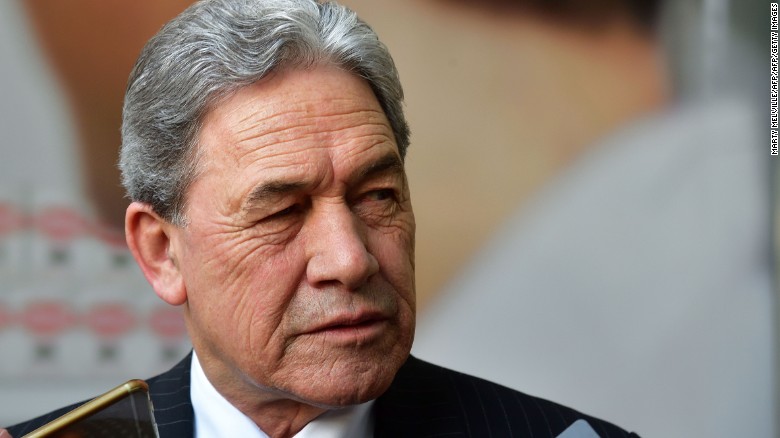
New Zealand's foreign ministor Winston Peters said this week the country has to stand up for itself after China warned its backing of Taiwan's participation at the WHO.
Rising jingoism
The heightened cross-strait tensions have fueled jingoistic calls in China for military action to "reclaim" the island.
In recent weeks, Beijing has stepped up military exercises around Taiwan, including twice sailing a battle group led by the country's first aircraft carrier, the Liaoning, around the island in April.
On social media and in the Chinese press, some have called on the People's Liberation Army to take advantage of the pandemic to invade Taiwan, arguing that the timing could not be better, with the US preoccupied with the coronavirus and its military might in the region crimped by an outbreak on the aircraft carrier USS Theodore Roosevelt.
However, most observers agree that such posturing is unlikely to be matched by any hostile action against Taiwan.
Timothy Heath, a senior international researcher at the RAND Corporation, a US think tank, said the weakness of China's economy precludes any such move. The coronavirus outbreak has resulted in the Chinese economy contracting by 6.8% in the first part of this year -- the worst plunge since quarterly records began in 1992.
"China needs access to (global) markets once they recover, and so it is in China's interests to maintain good ties with the US and the world," Heath said. "A reckless attack on Taiwan would only exacerbate tensions with Washington and could elevate the risk of economic sanctions and other penalties -- potentially crippling the Chinese economy."
He added that while Beijing "cares a great deal about Taiwan," the Chinese government cares "even more about maintaining the economic growth that underpins the (Communist Party's) rule."
News Courtesy: www.cnn.com


